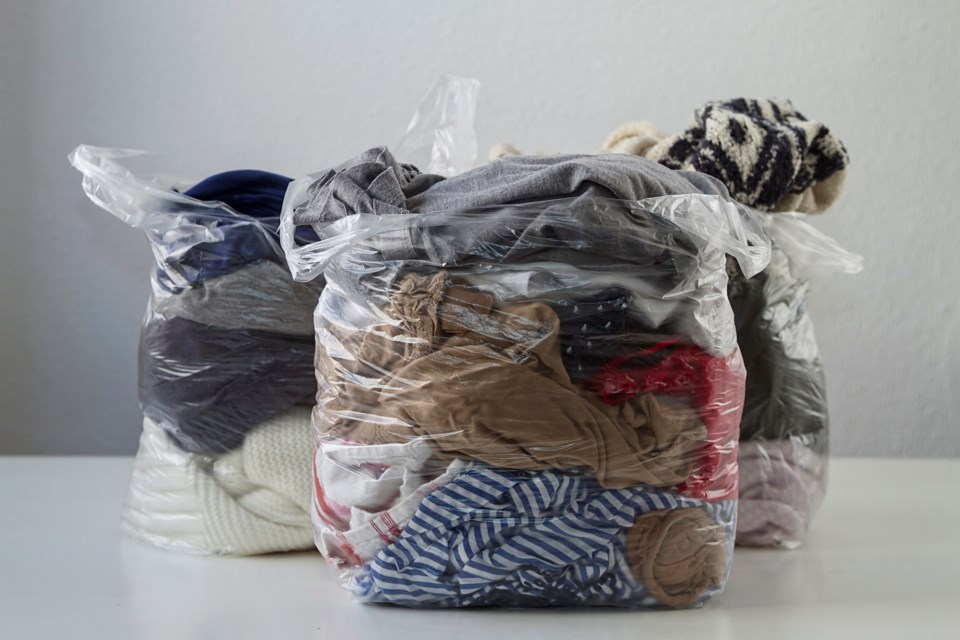Accumulating fabric has never been easier.
Garments are being manufactured at an alarming rate and sold for incredibly cheap through sites like Shein. The kicker is that the clothing doesn't have the durability or structural integrity needed to last long term which means when it comes to the end of its life it can't be resold or donated which only leaves throwing it away.
In a landfill, clothing made from inorganic materials like polyester (the primary material used in fast fashion) can take hundreds of years to break down.
Global fast fashion retailer H&M is currently subject to a class action lawsuit regarding its sustainability claims. The complaint also alleges that the store's recycling bins where consumers were told they could recycle old clothes were misleading because recycling solutions do not exist for many of H&Ms products and the ones that do exist are not available at a commercial level at the scale of H&M.
The lawsuit is based in New York but it raises a question that is pertinent to Vancouverites: Can you really recycle clothing? And if so, where?
Return-It Depots around Greater Vancouver no longer accept fabric recycling and Metro Vancouver is encouraging people to reduce the amount of clothing they buy, repair what they can and reuse or donate what they can't.
The irony is that there isn't a sustainable market for large-scale fabric recycling operations so many organizations in Metro Vancouver that used to offer such a program concluded them in June.
Overly soiled fabric or textiles that aren't suitable for reuse aren't recyclable because if they can't be repurposed it defeats the purpose of a recycling program. It's why soiled containers in soft plastic recycling can also stop the whole batch from being recycled.
Where can I recycle fabric?
There are a few places that still take fabric recycling so long as they are clean and dry. The Zero Waste Centre on Yukon Street (formerly known as the Recycling Depot) accepts textiles including reusable cloth bags.
The City of Vancouver is hosting a Reuse and Recycling Drop-off Event event on Saturday, August 20 in the Magee Secondary School parking lot. Clothing and textiles including bedding and pillows can be dropped off for reuse or recycling provided they are washed, dried, and tied in a bag. Even items that are ripped, broken, or stained will be accepted but anything wet or with mildew damage/contamination will be rejected. There will also be another event on September 17 in the Killarney Community Centre parking lot.
The Eco-Centre in Burnaby will accept clothing and household textiles.
Fabcycle on Keefer Street takes donations of fabric scraps and sewing supplies but they have to be useable for sewing projects.
Vancouver Firefighter Charities runs a clothing bank program with blue bins all over the city for people to drop off "any clean and dry textiles." 97 per cent of the textiles donated are recycled by Trans-Continental Textile Recycling and repurposed into a wide array of products such as clothing, stuffing used for upholstery products, dog toys, and cleaning rags for home projects. The remaining three per cent are said to be identified as worn beyond the ability to be recycled or are heavily soiled with chemical or biological agents.
There are also a few online database resources like Recylepedia and Metro Vancouver Recycles that can connect you to the nearest fabric recycling operation. Some of them are unorthodox such as local animal shelters accepting textile rags, towels, and sheets for animal bedding or to line kennels.
It's important however to call in advance to confirm that the fabric you're bringing is appropriate since not all of the information is entirely up to date. For instance, Recylepedia is still directing people to H&M.
It's also worth calling to clarify if the charities and textile recycling programs will indeed accept non-useable clothing and linens.



.png;w=120;h=80;mode=crop)